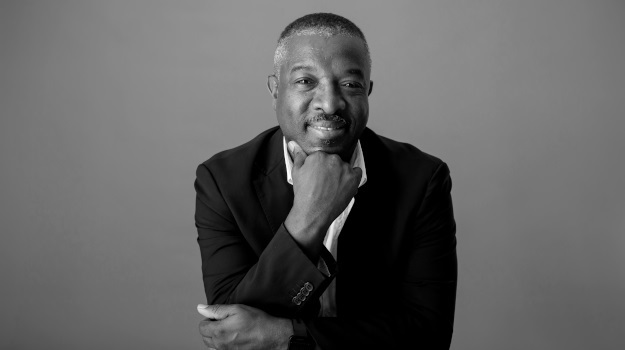
The SA of today, which is being sold to investors, trade partners and authorities, is a far cry from the country we all looked forward to at the end of apartheid. Backs against the wall, we can hardly afford to be cynical, writes Solly Moeng.
- For more financial news, go to the News24 Business front page.
Though many who remain caught in established patterns still find it hard to apply, it is known that applying the same failed approaches to solving a problem and expecting different outcomes is not just the beginning of madness. It is a sure sign of it.
It is also increasingly known to many South Africans, friends and observers here and across the globe that the SA they live in today – and which is being sold to investors, trade partners and authorities – is a far cry from the country we had all looked forward to seeing unfold at the end of apartheid.
Many admit this to themselves but find it harder to do so in the presence of "outsiders". This is understandable – it may be driven by shame or unpreparedness to face the practical implications of SA's deterioration for themselves and loved ones. It's also confusing.
While many would arguably jump on an opportunity for a job abroad if it were presented to them, many would not openly admit to hoping for or looking for one. For many, this still seems like a betrayal or abandonment. But the truth is that the deteriorating state of SA as a functioning country places those who live in it in a serious conundrum and difficult mental distress as families are torn apart by increasing numbers of departures by economically active loved ones.
Is the opposition finally waking up?
Part of the problem thus far has been a fractured, unfocused opposition. Other than using the public galleries at their disposal to drive attention to important issues or make a noise, SA opposition parties, particularly the main Democratic Alliance (DA), have for many years been too ineffective. Due in part to their relatively small numbers of elected representatives in the National Assembly and Provincial Legislatures, they have been unable to stop the many abuses SA has been subjected to by the governing party, the African National Congress (ANC).
Parties like the DA have spent fortunes in the country's courts in their attempts to either force the ANC to disclose key information or to stop it from going ahead with things they could not prevent through parliamentary processes.
The ANC’s dominance of South Africa’s democratic institutions - especially Parliament, as well as provincial and local spheres of government - has meant that it could take important political decisions with potentially massive reputational ramifications for South Africa through "rubber-stamp" processes without worrying about being defeated by opposing votes. This is also thanks to the antidemocratic system that was established in the aftermath of apartheid, which saw to it that parliamentarians represent the will of their political bosses and not those of the people of South Africa.
The power balance seems to be gradually changing, but not fast enough. Against this backdrop, the opposition political parties that recently announced a pact of sorts to underpin their campaign preparations ahead of the much-anticipated 2024 general elections should be given a chance. Most political party leaders, established and new, have long acknowledged the near impossibility of their respective parties unseating the ANC by themselves.
They also seem to have woken up to the need for some kind of base agreement that will underpin any post-electoral coalition they might have to go into, if they want to avoid facing the kind of destructive horse-trading that we have seen in some of the major metros where parties squabbled endlessly over the control of positions and budgets instead of driving their respective and collective energies towards serving the people who voted them in. All this happened while the long-suffering voters watched helplessly from the sidelines, hoping for the best.
Many observers of the recently announced opposition party pact are cynical. This should be expected because the announcement was preceded by several failed public announcements of wishes for such a coming together, as well as clumsy attempts to get them going.
Previously, some opposition parties refused to heed the call because of who made it and how it was made. Considering the bigger picture and issues at stake, this is arguably a childish response, driven by political ego. But all that is now, hopefully, in the past and it should remain there. There is work to be done to get South Africa to recover from decades of systemic abuses and to give it a chance of recovery and, for this to happen, all hands must be on deck, rowing in the same direction.
We, South Africans, are a largely opinionated lot. We can be loud, argumentative, and naive at the same time because we tend to make quick judgements based on headlines or the identity, often racial, of the person saying something without bothering to understand the context in which they said it. We also tend to be blind crowd pleasers. It takes a lot of courage for those who do so to step out of line with the established narratives and express opposing views. We need to revive the belief that we all belong, irrespective of our backgrounds, and that it is only when we leave our egos outside the room and find ways to converge – brought together by the many things that make us who we are as a diverse African society – can we save our country.
Perhaps it's time to abandon cynicism and instead hope that the opposition political party pact succeeds in inspiring South Africans to believe again in the potential that lies in our country.
Of course, this is just one side of our collective coin. Ordinary South Africans outside politics, through civil society formations focusing on different sectors of our communities, must also come together to agree, uninfluenced by politicians, what kind of South Africa they want. In the end, it is what the people want that must inform political action and the direction South Africa takes, not what politicians think the people want. Our democracy can only be said to be restored when this imbalance is corrected.
Solly Moeng is brand reputation management advisor and MD of strategic corporate communications consultancy DonValley. News24 encourages freedom of speech and the expression of diverse views. The views of columnists published on News24 are therefore their own and do not necessarily represent the views of News24.




 Publications
Publications
 Partners
Partners












